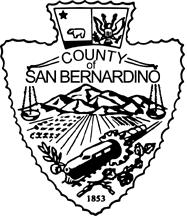San Bernardino County, California
Supplement contains: Local Legislation current through Ord. 4479, passed September 10, 2024

Website
Address
San Bernardino County
385 N. Arrowhead Avenue 2nd floor
San Bernardino, California 92415-0130
Previous Doc

San Bernardino County
385 N. Arrowhead Avenue 2nd floor
San Bernardino, California 92415-0130